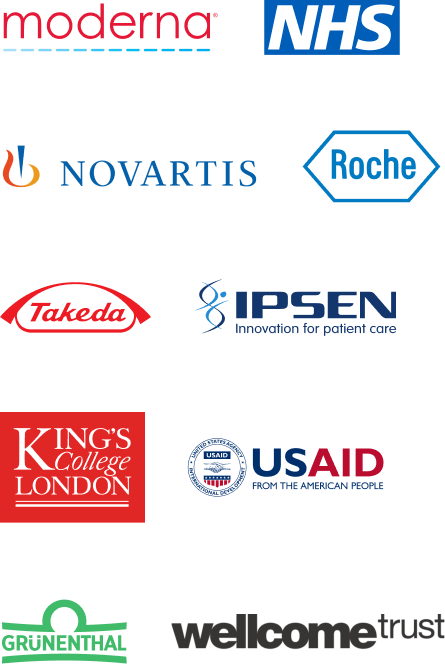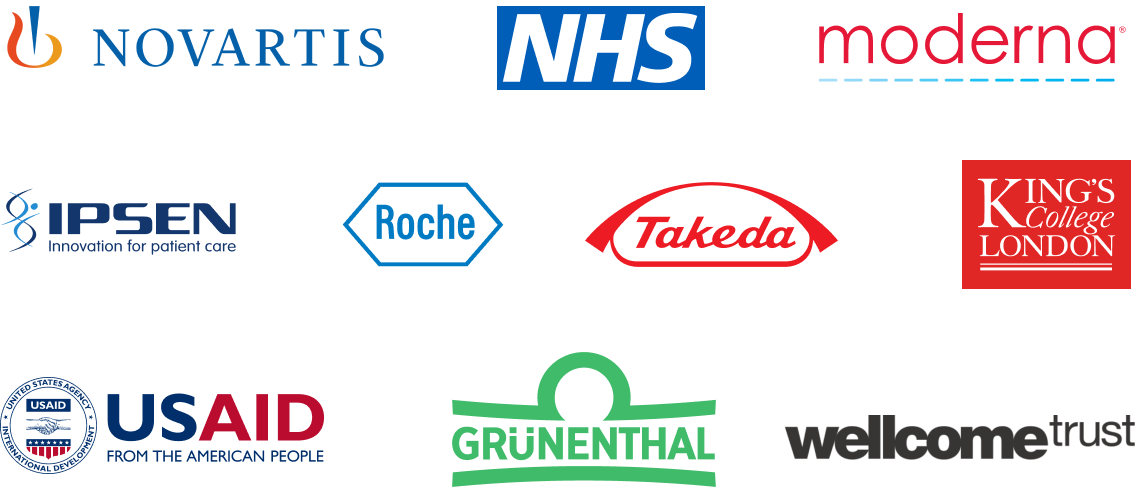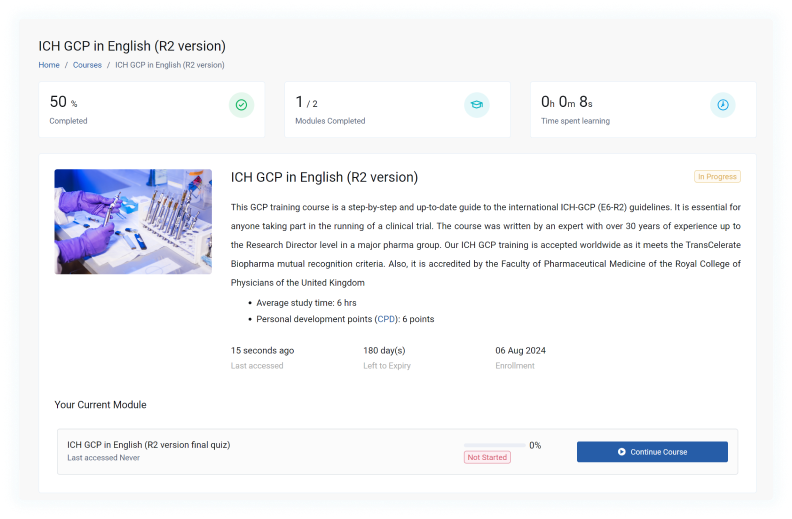Course Syllabus
- Introduction
- What is GCP?
- Why is ICH GCP Important?
- The Principles of ICH GCP
- Additional Learning Points
- Documentation and Version Control
- Quality Assurance (QA)
- Key Resources
- Introduction
- Responsibilities of the CA
- Responsibilities of the IEC
- Subject Informed Consent Forms (ICF): Part 1
- Subject Informed Consent Forms (ICF): Part 2
- Composition, Functions, Operations, Procedures, and Records
- Introduction
- Investigator Responsibilities
- Investigator Qualifications and Agreements
- Adequate Resources
- Medical Care of Trial Subjects: Part 1
- Medical Care of Trial Subjects: Part 2
- Communication with IRB/IEC
- Compliance with the Protocol
- Investigational Medicinal Products
- Randomisation Procedures and Un-blinding
- Informed Consent of Trial Participants
- Informed Consent of Trial Participants: The Consent Discussion
- Informed Consent of Trial Participants: Obtaining Consent Subjects Who Cannot Read or Write
- Informed Consent of Trial Participants: Obtaining Consent of Minors and “Mentally Incompetent” Subjects
- Informed Consent of Trial Participants: Obtaining Consent and Incapacitated Subjects
- Informed Consent of Trial Participants: Updating Consent
- Records and Reports: Introduction
- Records and Reports: Study Site Files
- Records and Reports: Updates & Amendments
- Records and Reports: Source Documents
- Records and Reports: Financial Information
- Records and Reports: The Case Record Form
- Records and Reports: Recording Subject Data
- Premature Termination or Suspension of a Trial
- Progress Reports and Final Reports by Investigator
- Archiving
- Introduction
- Quality Management: Part 1
- Quality Management: Part 2
- QA and QC (Quality Assurance and Quality Control)
- Contract Research Organisations
- Trial Design
- Trial Management and Data Processing: Part 1
- Trial Management and Data Processing: Part 2
- Trial Management and Data Processing: Part 3
- Trial Management and Data Processing: Part 4
- Trial Management and Data Processing: Part 5
- Investigator Selection: Introduction
- Investigator Selection: Permissions
- Investigator Selection: Responsibilities
- Investigator Selection: Compensation
- Financing
- Notification/ Submission to Regulatory Authorities
- Gaining CA Approval in the EU
- Confirmation of Review by IRB/IEC
- Information on IMP
- Manufacturing, Packaging, Labelling, and Coding Investigational Products: Part 1
- Manufacturing, Packaging, Labelling, and Coding Investigational Products: Part 2
- Supplying and Handling Investigational Products
- Record Access
- Audit and Inspection
- Noncompliance
- Premature Termination or Suspension of a Trial
- Clinical Trial/Study Reports
- Multicentre Trials
- Introduction
- Monitoring: Part 1
- Monitoring: Part 2 – Monitor Responsibilities
- Monitoring: Part 3 - The Monitoring Visit
- Monitoring: Part 4 – Verification of Investigational Medicinal Products (IMP)
- Complying with the Protocol, Amendments, SOP and Guidance
- Verifying Informed Consent
- The Case Record Form (CRF) and Source Documents
- Verifying Subject Data
- Errors
- Closing out the Monitoring Visit
- The Monitoring Report & Plan
- Quality Management - Centralised Monitoring
- Fraud and Misconduct
- Introduction
- Adverse Drug Reaction Reports: Part 1 – Adverse Events (AEs)
- Adverse Drug Reaction Reports: Part 2 – Serious Adverse Events
- Adverse Drug Reaction Reports: Part 3 – Suspected Unexpected Serious Adverse Reactions (SUSARs)
- Adverse Drug Reaction Reports: Part 4 – Adverse Events of Special Interest
- Adverse Drug Reaction Reports: Part 5 – Periodic Safety Reports
- Adverse Drug Reaction Reports: Part 6 – Reporting Decision Tree
- Introduction
- Protocol Structure and Content
- Introduction
- Investigator Brochure Structure and Content
- Introduction
- Essential Documents
- Archiving
- Documents to be Present Pre-Study
- Documents to be Present During the Study
- Documents to be Present Post-Study
- Glossary & Abbreviations
- Useful Reference Documents List
Our GCP certified customers


Good Clinical Practice (GCP) training is a vital educational programme designed to equip those involved in clinical research with the necessary knowledge and skills to conduct trials ethically and scientifically. This comprehensive course covers the globally recognised guidelines set forth by the International Council for Harmonisation (ICH).
The core objectives of GCP training include:
- Safeguarding the rights, safety, and welfare of human participants
- Upholding the accuracy and reliability of clinical trial data
- Fostering uniformity in high-standard practices across all clinical research activities
Whitehall Training's Good Clinical Practice Course thoroughly explores these crucial areas, offering learners a robust grounding in both the theoretical principles and practical applications of GCP. Our course ensures that participants gain a thorough understanding of the ethical and scientific standards essential for executing high-quality clinical trials.
For those aiming to take part in clinical trials research, obtaining GCP certification is essential.
If you're keen to broaden your knowledge of the clinical research field, GCP certification offers significant benefits:
- It guarantees adherence to global standards
- Your research gains credibility and quality
- Study participants' rights and well-being are safeguarded
- It opens up more career opportunities in clinical research
Whitehall Training's Good Clinical Practice Course doesn't just offer certification; it also provides you with hands-on skills to effectively implement GCP principles in your day-to-day work. This practical approach ensures you're well-prepared for the realities of clinical research, making our course a worthwhile investment for your professional development.
Good Clinical Practice (GCP) certification is crucial for numerous professionals involved in clinical research. The following roles typically require GCP training:
- Lead Researchers and Co-investigators: Those who oversee and conduct trials at research facilities.
- On-site Clinical Trial Team: This includes study coordinators, research nurses, and other personnel involved in day-to-day trial operations.
- Trial Sponsors and Research Organisations: Individuals responsible for trial planning, commencement, and result compilation.
- Regulatory Body Representatives: Officials tasked with ensuring trials comply with established standards.
- Ethics Committees and Review Boards: Members who assess and approve trial protocols.
- University and Research Centre Staff: Those ensuring institutional research meets international benchmarks.
- Researchers Funded by National Bodies: All staff working on nationally funded clinical studies.
Our Whitehall Training Good Clinical Practice Course is designed to meet the needs of this diverse group, offering both role-specific guidance and fundamental GCP principles.
Moreover, the course is beneficial for anyone seeking to enhance their research capabilities or improve their understanding of clinical trial procedures, regardless of their current role in the field.
Our GCP training programme is a comprehensive guide to the international ICH-GCP (E6-R2) guidelines, essential for anyone involved in clinical trials. It's designed to meet the training requirements for participation in international clinical studies, offering a thorough, step-by-step approach to understanding and implementing Good Clinical Practice.
Crafted by an industry veteran with over three decades of experience, including a stint as Research Director at a major pharmaceutical company, this course brings real-world insights to your learning. The Faculty of Pharmaceutical Medicine of the Royal College of Physicians of the United Kingdom has accredited our programme, underscoring its quality and relevance.
We've made accessibility a priority, offering the course in multiple languages beyond English, including German, Bulgarian, French, Italian, Japanese, Polish, Portuguese, Russian, and Spanish. For those working in specific regions, we've developed tailored versions that align with the regulatory frameworks of Australia, the UK, the US, France, Germany, and Latin America.
Our course stands out for its user-friendly design, featuring clear, visually engaging content that's easy to follow. We've structured it to allow simple cross-referencing with the ICH-GCP E6 document, enhancing your understanding of the guidelines. The practical insights woven throughout the course, drawn from extensive industry experience, help bridge the gap between theory and real-world application.
Upon completion, participants can earn 6 CPD points, adding value to their professional development. Whether you're new to clinical trials or looking to refresh your knowledge, our GCP course offers a robust, accredited learning experience to support your role in clinical research.
Indeed, our GCP course has received accreditation from a prestigious body: the Faculty of Pharmaceutical Medicine at the Royal College of Physicians. This institution is renowned as the professional membership organisation for pharmaceutical physicians in the United Kingdom and has been establishing stringent research standards since 1989.
The accreditation of our course by such a respected entity serves as a testament to its quality. It assures participants that the content and delivery meet exacting industry and academic criteria, resulting in a qualification that is widely acknowledged within the field.
The price of GCP certification can vary based on several key factors:
- Official recognition: Has the course been endorsed by reputable organisations?
- International compliance: Does the certification meet ICH standards for global clinical trial participation?
- Content excellence: Is the material current and authored by industry professionals?
- Duration of availability: For how long can students access the course materials?
At Whitehall Training, our GCP course is priced at £79, reflecting its high standards:
- Official recognition: We've earned accreditation from the Royal College of Physicians, offering 6 CPD points.
- International compliance: Our certification adheres to ICH E6(R2) guidelines, enabling participation in clinical trials worldwide.
- Content excellence: The course is crafted by our GCP specialist, Lucy Parker, who brings over ten years of experience managing research across major institutions, including the NHS.
- Duration of availability: We support continuous learning by providing unlimited access to course resources.
For group bookings, we offer a 10% discount on orders of 5 licences at checkout. If you're interested in larger group discounts, please reach out to our team for a tailored quote.
Indeed, some no-cost GCP training options can be found, but they often come with notable drawbacks:
- The content may be of inferior quality (lacking accreditation) and not up-to-date
- They typically don't offer official certification, which is crucial for researchers to be permitted to conduct clinical studies
It's worth noting that these free courses can serve a purpose for those seeking a rudimentary grasp of Good Clinical Practice principles and its fundamental concepts. However, they are generally insufficient for professionals requiring comprehensive training and certification.
For those in need of a thorough, accredited GCP course that provides official certification, Whitehall Training's Good Clinical Practice Course is designed to meet industry standards and equip researchers with the necessary knowledge and credentials to participate in clinical research.
Whitehall Training's GCP course offers an in-depth exploration of the essential principles and practices required for ethical and scientifically robust clinical trials. Our programme is structured to accommodate learners at various levels, featuring both fundamental and more complex modules.
The curriculum encompasses a wide range of crucial subjects, including:
- The origins and core tenets of Good Clinical Practice
- Defining the duties of investigators, sponsors and monitors
- Ethical deliberations and procedures for obtaining informed consent
- Creating and adhering to trial protocols
- Managing safety reports and adverse incidents
- Ensuring data quality and maintaining integrity
- Navigating regulatory landscapes and interfacing with authorities
- Maintaining crucial documentation and records
- Proper handling of investigational medicinal products
- Effective site management and monitoring techniques
We deliver this training through a variety of engaging e-learning methods, designed to enhance the learning experience:
- Comprehensive instructional materials
- Authentic case studies and scenarios drawn from real-world situations
- Engaging knowledge assessments and quizzes
- Practical illustrations and industry best practices
- Chances for personal reflection and practical application of knowledge
This approach ensures that participants gain a thorough understanding of GCP principles, preparing them for the complexities of clinical research.
Achieving your Good Clinical Practice certificate involves a simple two-stage process:
- Work through our engaging, interactive course materials to complete the learning component.
- Sit the online final assessment.
Feeling apprehensive about the GCP test? There's no need to worry. The assessment is merely in place to confirm your readiness for research participation. Should you not pass on your first attempt, you can easily revisit our comprehensive resource library to address any knowledge gaps, then have another go at the exam.
Our Good Clinical Practice course is structured to ensure participants not only absorb the material but can also implement it effectively in actual clinical research environments. To achieve this, we've incorporated various evaluation methods throughout the learning journey:
- Continuous Evaluation: As learners progress through the modules, they'll encounter interactive quizzes and practical scenarios. These elements serve to solidify key concepts and provide participants with a means to check their comprehension along the way.
- Comprehensive Final Assessment: The course concludes with an in-depth examination that thoroughly evaluates the learner's understanding of GCP principles and practices. This assessment covers all major areas covered in the course, including:
- Ethics in clinical research
- Regulatory compliance and requirements
- Clinical trial roles and responsibilities
- Quality management and data integrity
- Adverse event handling and safety reporting
Real-world Application: The final assessment includes questions designed to test the learner's ability to apply GCP principles to authentic clinical trial situations.
To ensure participants are fully equipped to conduct trials, successful completion of the final assessment is necessary to obtain GCP certification.
Learners may retake the final assessment as many times as needed, ensuring they achieve the required level of understanding and become GCP qualified.
Our Good Clinical Practice (GCP) course is crafted to cater to a diverse array of professionals engaged in clinical research. Whilst a foundational grasp of clinical research can be advantageous, it's not a mandatory requirement. We've thoughtfully structured the course material to suit various experience levels and roles within the clinical trial ecosystem.
This training proves especially beneficial for:
- Research Nurses
- Clinical Trial Managers
- Principal and Sub-Investigators
- Clinical Research Coordinators
- Quality Assurance Specialists
- Data Managers and Biostatisticians
- Pharmacists involved in clinical studies
- Regulatory Affairs Professionals
- Ethics Committee Members
- Sponsor and CRO staff
Whether you're embarking on your clinical research journey or seeking to update your existing knowledge, our course offers a thorough exploration of GCP principles and their real-world application. We've designed it to be accessible and relevant, regardless of your current level of expertise in the field.
Yes, our Good Clinical Practice (GCP) course is fully web-based, providing learners with unparalleled convenience and adaptability. This digital format offers several key benefits:
- Personalised learning speed: Students can navigate through the course content at a rhythm that best suits their individual needs and timetable. This approach enables a more thorough engagement with the material, free from the constraints often associated with traditional classroom settings.
- Round-the-clock availability: The course can be accessed at any time, from any internet-enabled device. Whether you're at your workplace, in your living room, or on the move, the course materials are always at your fingertips.
The International Council for Harmonisation, or ICH, plays a crucial role in shaping global pharmaceutical research standards, including Good Clinical Practice (GCP). Here are some essential points about ICH:
- It's a worldwide collaborative effort, uniting regulatory bodies and pharmaceutical industry experts.
- ICH establishes internationally accepted guidelines for conducting clinical trials.
- The organisation's GCP guidelines are centred on safeguarding trial participants and maintaining data reliability.
- These guidelines undergo periodic revisions, with ICH GCP E6(R2) being the most recent iteration.
To ensure clinical trials meet global compliance standards, researchers must follow these ICH guidelines closely. This is precisely why we've developed our comprehensive Good Clinical Practice course. Our training covers all 13 fundamental ICH GCP principles in depth, equipping you with the knowledge needed to conduct research that aligns with international standards.
The ICH GCP E6 (R2) guidelines represent the latest revision of Good Clinical Practice standards, published in 2016 by the International Council for Harmonisation of Technical Requirements for Pharmaceuticals for Human Use. This update marks a significant advancement in GCP protocols, adapting to the evolving nature of clinical research.
It's essential for clinical research professionals to be well-versed in ICH GCP E6 (R2) for several reasons:
- These guidelines set the current worldwide benchmark for ethical and scientifically robust clinical trials.
- Regulatory bodies across the globe often mandate adherence to these standards.
- They play a vital role in safeguarding trial participants and ensuring the credibility of research outcomes.
The International Council for Harmonisation (ICH) Good Clinical Practice (GCP) guidelines are founded on 13 essential principles that form the bedrock of ethical and scientific standards in clinical research. These crucial tenets encompass:
- Conducting research ethically
- Ensuring benefits surpass potential risks
- Safeguarding participants' rights and wellbeing
- Providing comprehensive supporting information
- Implementing scientifically robust protocols
- Obtaining IRB/IEC endorsement
- Ensuring qualified medical oversight
- Employing competent investigators
- Securing informed consent
- Maintaining precise data documentation and reporting
- Upholding confidentiality
- Adhering to good manufacturing practices for investigational products
- Implementing quality assurance mechanisms
The Whitehall Training Good Clinical Practice Course offers comprehensive instruction on these fundamental principles, equipping learners with the knowledge to effectively apply them in practical clinical research scenarios. Our course is designed to provide a thorough understanding of how these principles shape and guide the conduct of clinical trials, ensuring that participants gain the skills necessary to navigate the complexities of modern clinical research environments.

